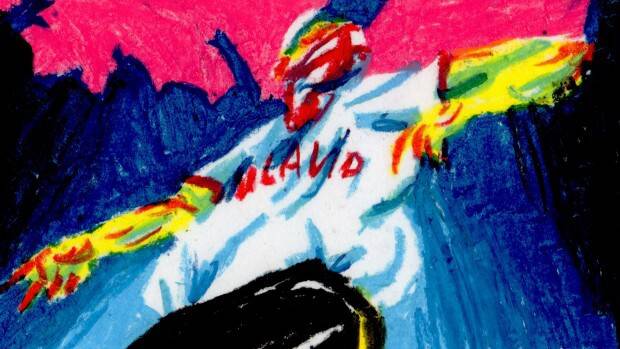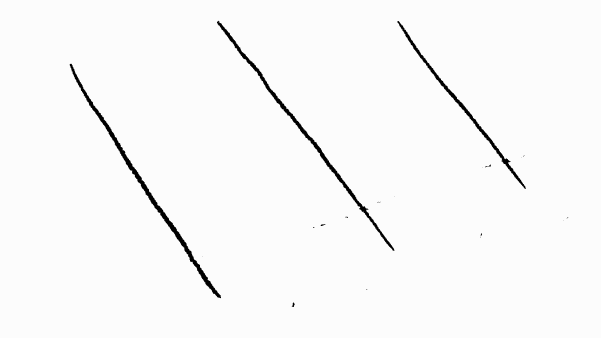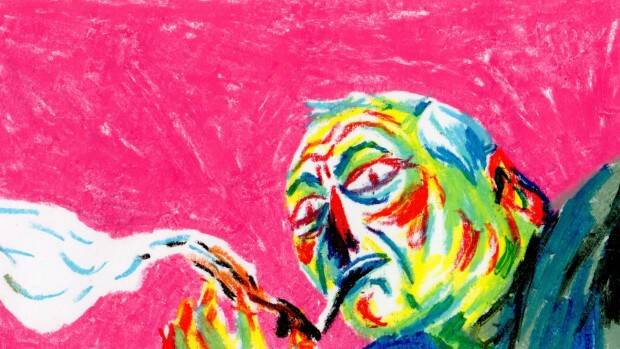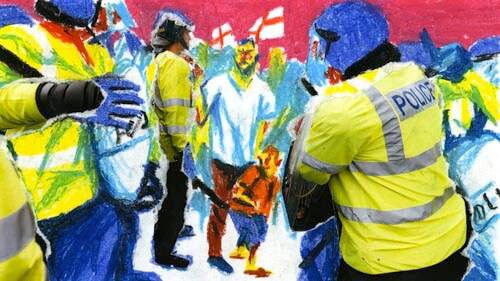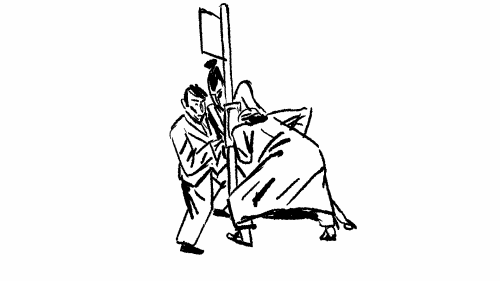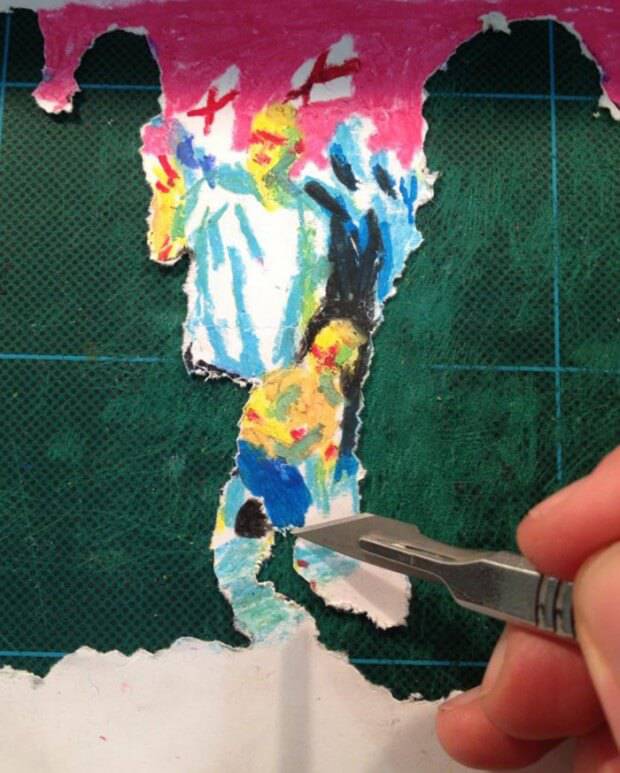An Interview with My Dad director Marcus Armitage
After winning a Cristal for a Graduation Film at Annecy last month, it seemed only right that Skwigly caught up with the director of My Dad Marcus Armitage to discover more about his recent graduation film that has taken the festival circuit by storm this year. Born and bred in Wakefield, Armitage discusses his journey into animation and the juxtaposition of moving to study an MA at the Royal College of Art in London, and how moving to a more multicultural environment inspired his film. My Dad explores how opinions and actions can be transpired onto the next generation. The visual aesthetics are the signature style of this animator and have beautifully developed throughout his films, and he has frequently got the recognition of being a Vimeo staff pick, the film has also picked up multiple awards and a BAFTA nomination.
Maybe you could tell us about the film in your own words?
My Dad is a film about inherited racism in modern Britain. How inherited opinions and judgements from this boy’s dad effect his life and his outlook on life around him. He lives in a multicultural London, as his opinions from his Dad intercept his life and these great opportunities fall away. It’s about how inherited racism can change your outlook on life as a kid.
Does a BAFTA nomination fill your inbox up? Does it give you more exposure – is it more of a hindrance or a benefit to a filmmaker such as yourself?
Well it’s definitely a benefit, lot’s of people end up getting in touch – which was a big shock for me! So it definitely fills up the inbox, but it’s really good exposure and getting to do things like this. Which is really nice, and helps in trying to get my work out there.
Excellent. Maybe with it being a graduation film it would be nice to hear a little bit about your background, where you went to study undergrad and postgrad and about your work leading up to that point.
Well, I started getting interested in animation when I did my foundation course, at the Leeds College of Art, and then from there I studied my BA at UCA Farnham, made a film every year there. So I came out with three films, and I really enjoyed my time there. But I never managed to actually properly finish a film, it was always a rush to the end, which wasn’t great so that’s why I decided I wanted to do an MA and learn more about animation. From there I got into the Royal College of Art and made two more films, and this film that’s been nominated for the BAFTA is my graduation film from then. So that was a really great experience.
Let’s talk a little bit about being a student, and trying to get films made because I found that a struggle and I’m sure many reading this, will have had similar experiences. Is their something that you think about the student experience that hinders filmmaking. You go to learn but theirs also a requirement to make a film as well and it’s one against the other really.
Yeah, I think it’s a bit of both. It’s a great way to make a film because you have the safety net of the fact that it doesn’t really matter if you get things wrong and this means you can try things out. There’s no need to do anything else than just make the films. So it’s an experience that you probably won’t find ever again, once you’ve finished you’ll be bogged down with work. The course at the RCA was two years to try things and experiment and dedicate most of my time to making films. But then there is also a pressure to make something that’s good which is quite difficult to cope with. You’ve just got to try and remember that you’ve just got to make a film and it doesn’t matter whether it’s going to be great or not. If end up trying to make something that’s going to win awards, then you will probably not win anything. So it’s best just to go with it and work really hard.
That’s good advice, Is there anything else that you learnt at the RCA that you felt helped develop you as a filmmaker front that MA course?
Yeah definitely, when I was at the RCA, I experimented a lot with my drawing and editing film. Particularly this film, I edited it as I went along rather than rather than making an animatic before, I just did the animation and started piecing it together which was slightly a bad thing to do (chuckles), because you end up deleting some animation at the end which you’ve spent a lot of time on. Also it is a lot more interesting process, but it felt like a much more natural way of making the film to me. It’s not the best way of doing it but it’s an interesting way if you’re a bit bored and tired of doing it in the traditional way.
With this kind of editing process you had, did you find yourself making the film you set out to make?
Yeah, it definitely wasn’t the film I set out to make, it changed every week then towards the end it changed everyday. There was a whole lot of rearranging of shots to change the way it flowed. But that meant it was a nice surprise at the end. I got to see it develop as it went along and started to get a feel for the film by the time I got to the end. You learn to stop changing it.
Yeah I think it was George Lucas who said “A movie is never finished, you just abandon it.”
(Lots of chuckling,) Yeah that’s definitely how I felt. You just say okay, this has to stop now, and you have to walk away from it. Then don’t look at it for a while afterwards. But then after a while you feel quite good about it.
Was there any particular reason why you decided to pursue this idea?
Yeah, it started as a self reflection looking at me moving from Yorkshire to London. Living in London was an eye opening experience just as the sheer amount of different cultures was in a small space, which I found really interesting. It was really great for me, a great chance to experience lots of different things. I wanted to make a film about how these people in such a multicultural space try to get along, that’s how I got interested in the whole racism and immigration debate. Then from there the research snowballed, I ended up looking at inherited racism and where the idea of racism comes from.
It’s fascinating how the layers peel away, as the film builds up and the world gets scarier around these innocent children, the innocence is really lost as the film continues. Could you tell us about the final image of the film, was this something that was always in the film as the finishing line?
It came roughly in the middle of making the film. I had this idea of a boy learning these different ideas and judgements from people around him, and as I was researching I found this picture that perfectly captured the whole story and I just knew I had to use it. I contacted the photographer and he let me use it for the end of the film. As soon as I saw it I knew I had to use it.
It’s a very powerful image to end the film on. Was the whole film shot in camera? Tell us a little bit about the artistic style you used.
All of the film was done on the oil pastel frames. But to start with I made the film digitally on TV Paint and projected it onto paper so I could trace it and colour it in, it would have been a nightmare to do the oil pastel artwork straight onto the paper. The majority of the films is made in that way. Then the parts that use newspaper clippings, with the Dad’s judgemental world seeping through, were physically torn frames that were shot on a green screen to make the backdrop come through. So it’s a mix of different techniques. But most of it is on the original frame. So I have thousands of frames with all the different little torn shapes in.
Oh wow, so what does your actual Dad think to the film?
He knows it’s not about him!! It seemed to be the only reasonable title I could give it, it was the only one that made sense. But he knows it’s not about him, but it’s about an idea that happens quite a lot. Not just on racism but on any other subject, when you’re a kid in the playground everyone says “My Dad said this..” or “My Mum said this..” so it’s about that kind of idea as well.
You’ve used animation to portray the idea, is their something about animation that draws you to animation that you don’t think you can get in live action for example?
Yeah I think there are lots of ideas in the film that are why I like animation. The way you can physically interact with the drawings and can show different perspectives in quite a different way, that’s quite direct. It makes it really interesting to look at, I’ve always been really interested in drawing so getting those colours and dynamic shapes is what really brought me to animation.
What’s next for you now?
I’m just working as a freelance animator at the moment at different places, and I’m represented by Film Club. So I’m doing bits of commercial work, I guess I want to make another film soon. I’ve got some ideas together, so I’m just working out how I can make those films and hopefully get some funding. It’s still new to me as I finished studying in June 2014, so everything is still a new experience at the minute. So I’m just trying to make the most of it.
Interview conducted by Steve Henderson


